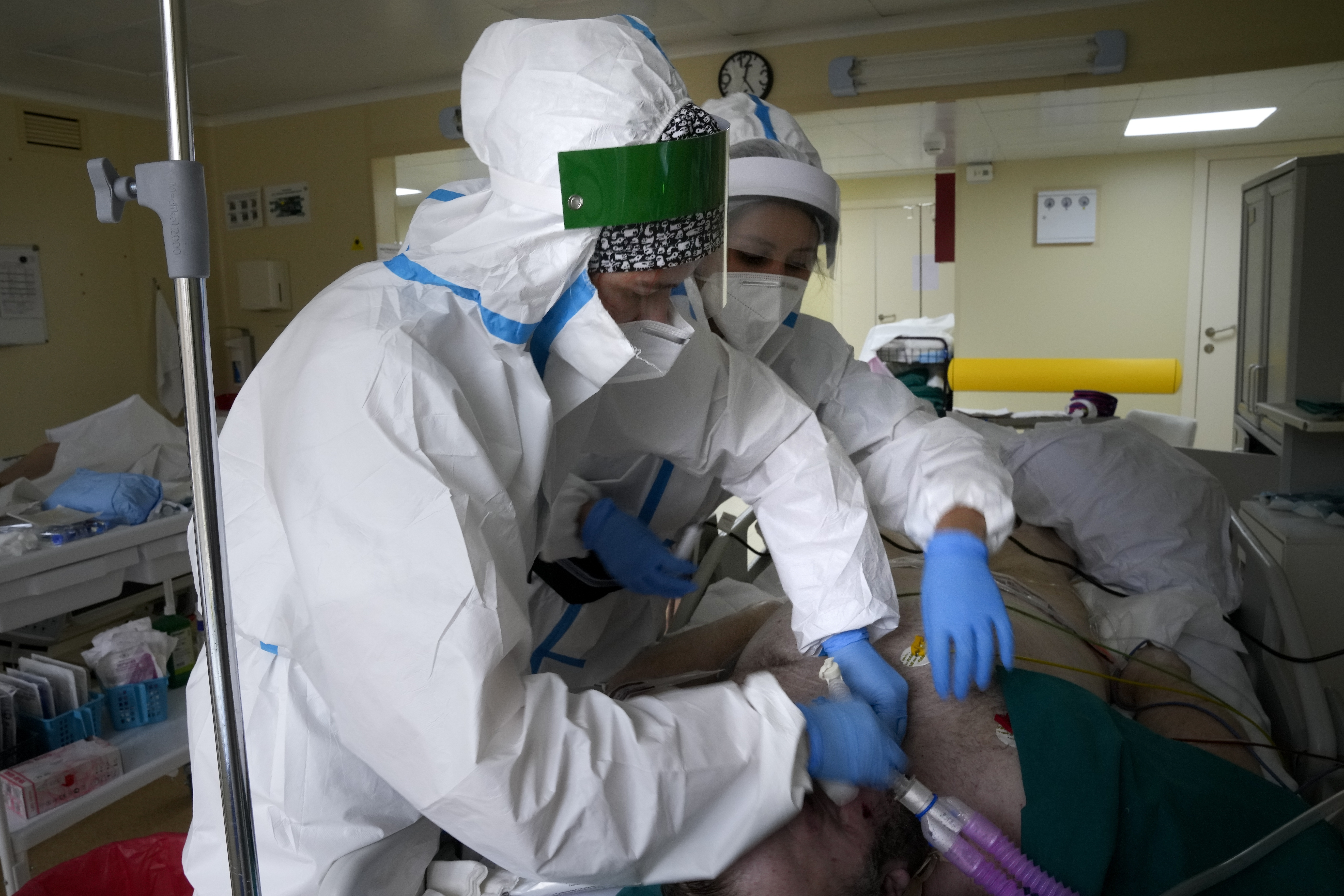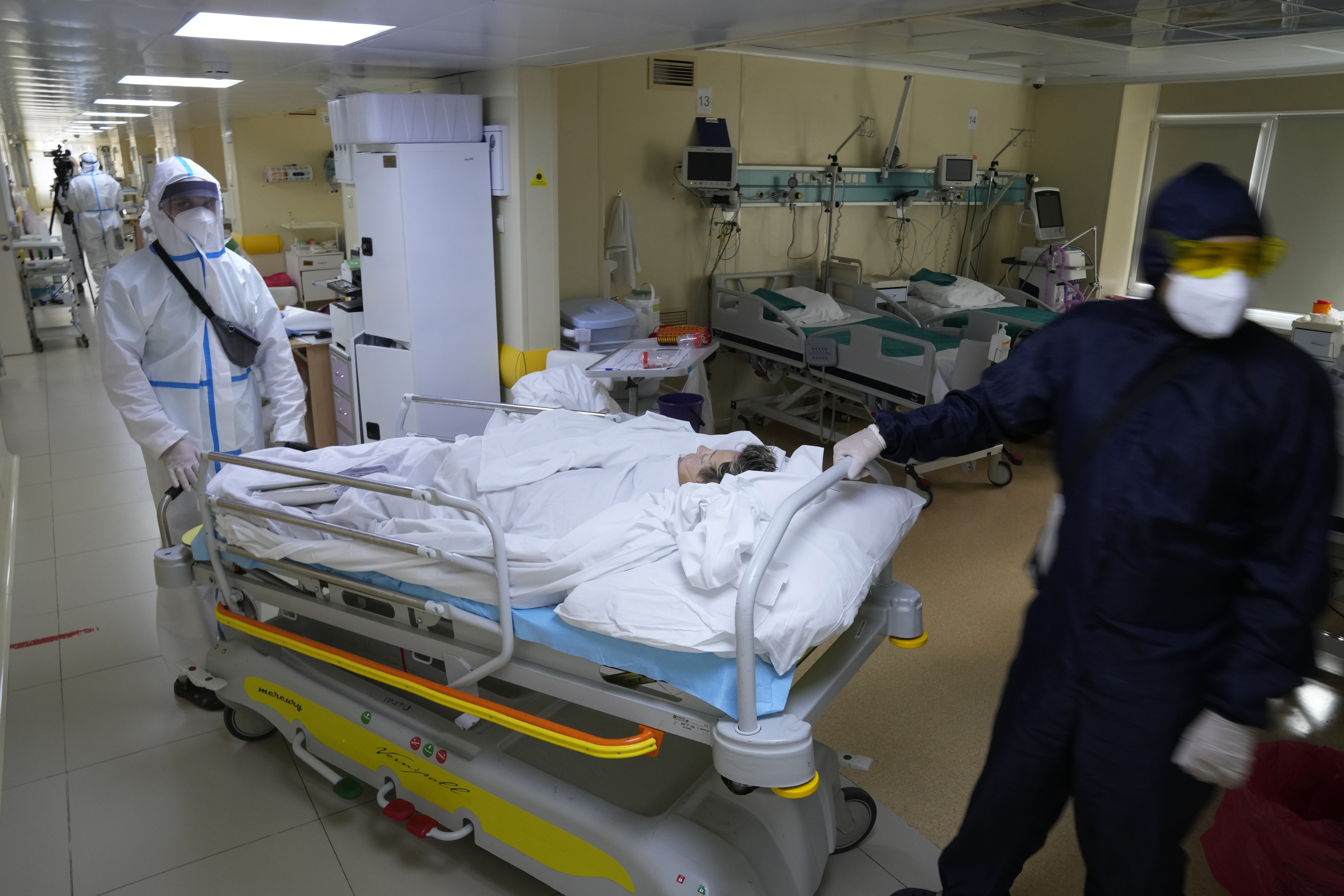Moscow will impose a 10-day lockdown from next week in an effort to curb soaring Covid-19 cases, the city's mayor has said, as Russia endures its worst-ever phase of the pandemic.
"In the coming days, we will reach historic peaks in Covid cases," Sergey Sobyanin wrote in his blog, before announcing strict restrictions from October 28 to November 7.
"During this period, the work of all enterprises and organizations on the territory of the city of Moscow should be suspended," he said, before outlining a few limited exemptions.
Earlier this week the city ordered all unvaccinated residents over 60, as well as unvaccinated people "suffering from chronic diseases," to remain home for four months until late February.

Russia's Covid-19 crisis is deepening and its officials have started openly admitting that the country is facing a dire winter.
It reported its highest numbers of daily cases and deaths multiple times in recent days, and registered a record 1,028 official fatalities on Wednesday.
Prime Minister Mikhail Mishustin said at a Covid-19 taskforce meeting on Tuesday that the burden on medical institutions is seriously increasing, while the governor of the Oryol region, Andrey Klychkov, recently revealed that the region does not have the capacity to hospitalize any more coronavirus patients.
"The most terrible figure is that we had 1,854 beds prepared, today there are no more free beds available. Of course, we will free as many beds as we can, we'll look for options. But at the moment there are no beds available, and this raises serious concerns," Klychkov said during a live broadcast on Instagram.
Experts blame a slow vaccination drive, an overwhelmed health care system and widespread mistrust in government for the situation.

Russia's efforts to reduce transmission have been seriously hampered by a lackluster vaccination program. Just around 30% of the population is fully vaccinated, in a country where four domestic vaccines are available.
On Tuesday, when the country hit another Covid deaths record, the Kremlin admitted its partial responsibility for the low vaccination rates. "Of course, not all that needed to be done was done for informing and explaining the inevitability and importance of vaccination," President Vladimir Putin's spokesperson, Dmitry Peskov, told journalists.
"But at the same time, citizens of our country need to take a more responsible position and get vaccinated," he added.
